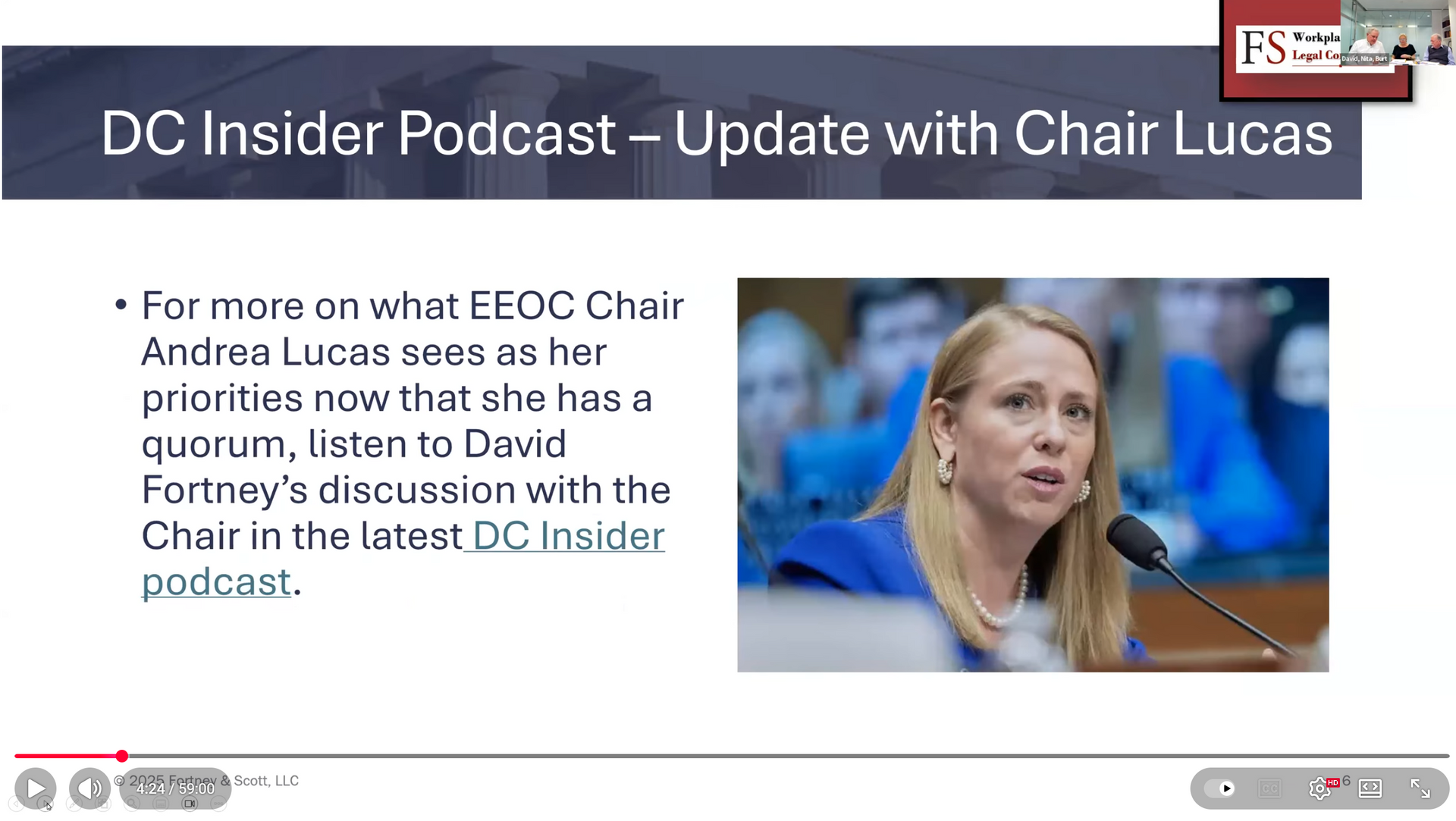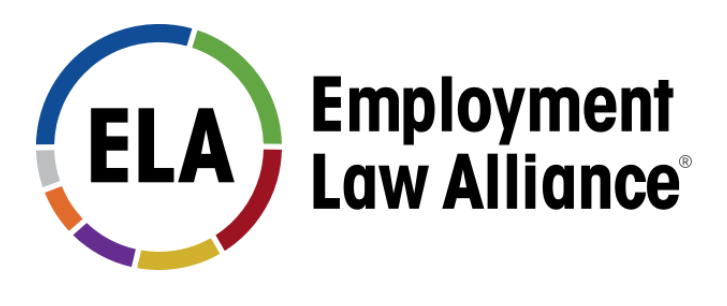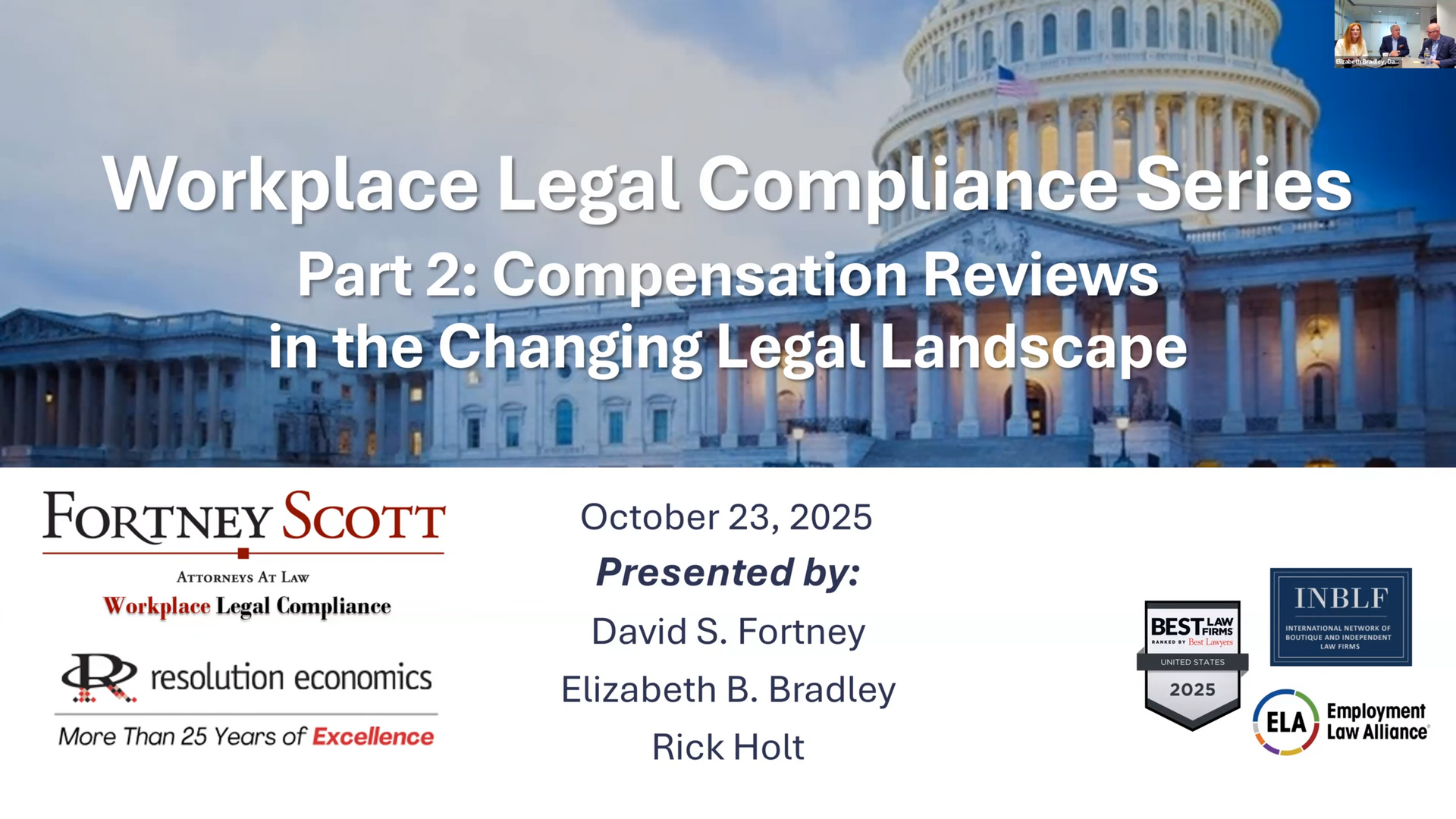Pay Equity Bulletin
Pay Equity Bulletin: Spring 2023
This winter brought significant developments in pay equity matters. March 14 marked Equal Pay Day for women, which should serve as a reminder for employers to conduct pay equity assessments on a regular basis in order to avoid enforcement actions and legal claims related to unequal pay.
In addition, a number of states implemented or passed laws requiring the disclosure of pay ranges in job postings that will cover any employer posting positions for remote work that can be performed in those states.
U.S. Marks Equal Pay Day
Tuesday, March 14 was Equal Pay Day for 2023. Equal Pay Day is not attached to a particular date but instead marks the day each year that women catch up to the earnings of men for the prior year. Women on average still earn only 84 cents on each dollar a man earns, and the figure is significantly worse for many minority women. Equal Pay Day should serve as a yearly reminder to employers to assess their pay practices for discrimination. Employers that assess their compensation structure through pay equity audits are less likely to attract enforcement actions and costly litigation.
While the federal government took no significant action on Equal Pay Day to advance pay equity, statements from leadership in the Biden administration emphasize that the administration remains ready and willing to bring enforcement actions against employers with discriminatory pay practices. On Equal Pay Day, Charlotte Burrows, Chair of the Equal Employment Opportunity Commission (EEOC), issued a statement touting the accomplishments made towards equal pay since Equal Pay Day was instituted in 1996, when the event came a month later. But Chair Burrows cautioned that “[w]hile we have gradually chipped away at the gender pay gap, we still have significant work to do.” President Biden marked the day by issuing a Proclamation calling on Congress to pass the Paycheck Fairness Act, which would make it more difficult for employers to defend pay disparities in legal proceedings and would make it largely unlawful for employers to make decisions about compensation for new employees based on past compensation history.
The Acting Secretary of Labor, Julie Su, also issued press release noting what DOL is doing to close the pay gap and specifically noting OFCCP’s issuance of a fact sheet on proactive approaches to pay equity. Former OFCCP Director Jenny Yang posted on the DOL blog, Recommitting to Pay Equity on Equal Pay Day, in which she outlined how to improve pay equity, concluding that “[p]ay equity benefits all workers and the economy.”
Woman do not just lag behind men in compensation. According to a U.S. Government Accountability Office report released on Equal Pay Day, they are also underrepresented in management positions. Moreover, women compromise only 10% of the CEOs of Fortune 500 companies.
Remote Workers Covered by New Pay Range Disclosure Laws
This winter there have been significant developments regarding pay transparency laws across the country. New York State enacted a law requiring disclosure of pay ranges in job advertisements and California and Washington State issued much needed guidance for employers seeking to comply with similar laws that went into effect in those states on January 1. Employers should be paying attention to these laws regardless of whether they have worksites New York, California, or Washington because postings for remote work in those states will be covered.
- On December 21, 2022, New York Governor Kathy Hochul signed into law a bill requiring employers with four or more employees to include wage or salary ranges in all advertisements for hire, promotion, or transfer. The law would apply to all jobs “that can or will be performed, at least in part, in the State of New York.” The law extends to remote workers located in New York and is set to go into effect on September 17, 2023.
- Also in December, California and Washington State released guidance to assist employers in complying with their laws requiring disclosure of pay ranges in job postings. According to the guidance documents, both laws will cover postings for positions that can be performed remotely within those states.
- Washington State’s pay range disclosure law requires every job posting to include a wage scale or salary range, a description of available benefits, and an explanation of any other compensation offered. The Washington guidance lays out strict requirements for what information about benefits and other types of compensation must be included in the job posting, making Washington’s law arguably the most strenuous in the nation from a compliance perspective.
- The California guidance does not require employers to disclose benefits or other forms of compensation.
Employers across the country offering remote work in any of these states should be reviewing the requirements of the new laws even if they do not have operations in California, New York or Washington State because any remote positions will fall under the jurisdiction of those laws. Moreover, Colorado was the first to pass a law requiring disclosure of pay ranges in job postings and its law covers remote workers located in the state as well. Not to mention there are numerous municipalities and localities that passed similar laws, such as New York City and Jersey City, NJ, some of which may cover remote workers. Employers should not assume their job postings are free from coverage.


















